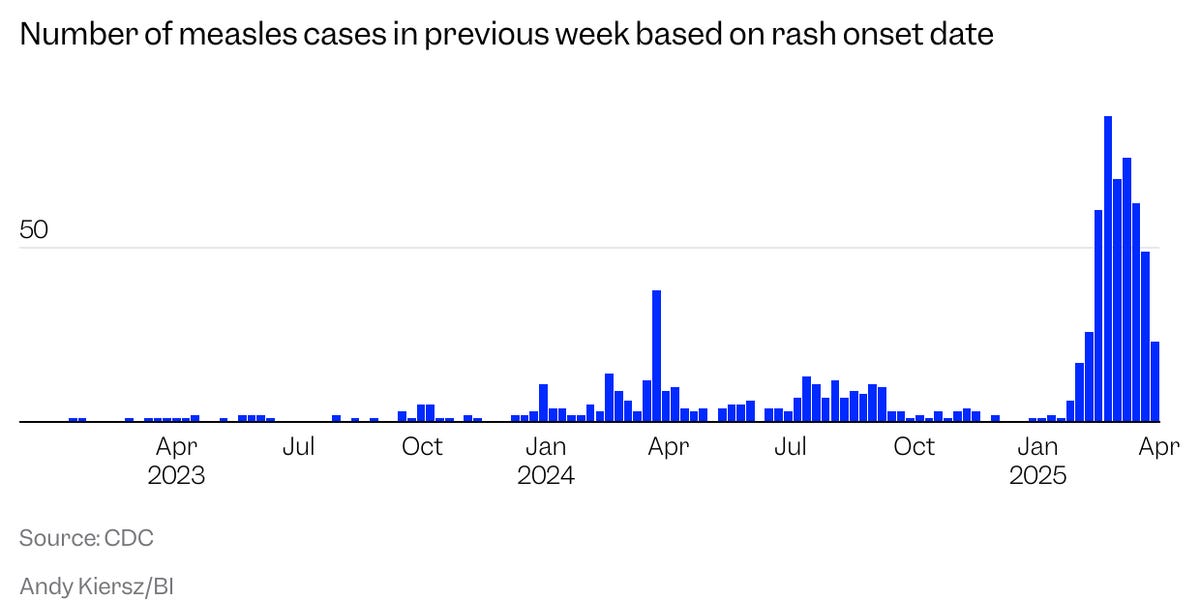Measles Outbreak: Alarming Surge Reveals Rapid Nationwide Spread

A growing health concern is sweeping across the United States as 19 states report confirmed measles cases, with Texas emerging as the epicenter of the outbreak. Public health officials are closely monitoring the situation, warning citizens about the highly contagious nature of the disease.
Texas has been hit particularly hard, accounting for the majority of reported cases and raising alarm bells for healthcare professionals. The sudden surge in measles infections has prompted increased vaccination efforts and public health awareness campaigns across the affected states.
Experts are urging parents to ensure their children are up-to-date on measles vaccinations and to seek medical attention if they suspect any symptoms. The outbreak serves as a critical reminder of the importance of immunization in preventing the spread of infectious diseases.
Health departments nationwide are working diligently to contain the spread and protect vulnerable populations, emphasizing the need for community-wide vaccination and vigilance.
